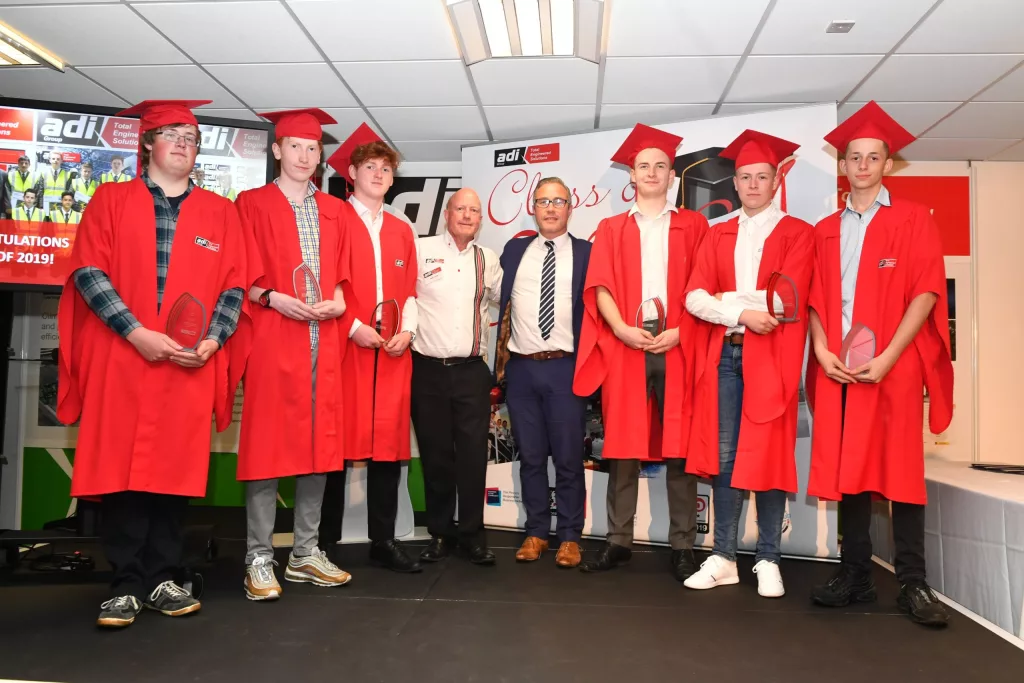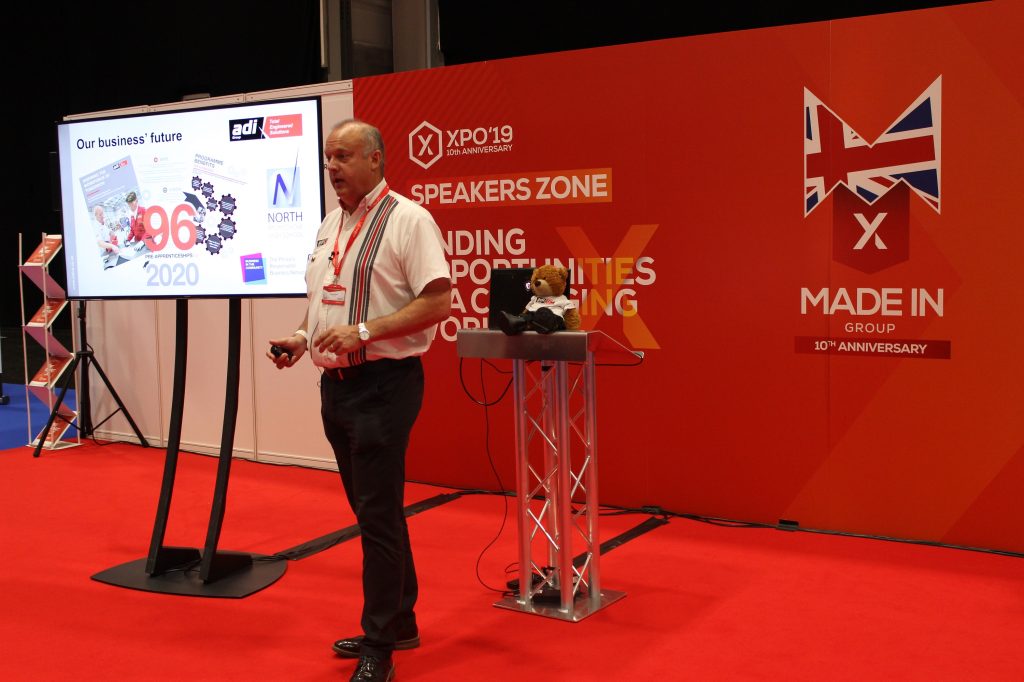Heat Pumps Play a Vital Role in the UK’s Decarbonisation Goals: How Can We Accelerate the Transition to These Highly Sustainable Systems?

The environmental benefits of heat pumps are certainly not news to anyone – or at least, they shouldn’t be, least of all for businesses looking to both reduce costs and deliver on their ESG goals. Heat pumps are renowned for being the most cost-effective form of electricity-based heating, making them less expensive to run and more environmentally friendly. One of the lessons the cost-of-living crisis has taught us is that energy efficiency makes a difference when it comes to saving on energy costs, meaning high energy efficiency ratings play a role in lowering electricity bills for both households and businesses, making heat pumps a compelling option. In our ongoing battle to reduce our carbon footprint, systems that use electricity to run (and only a small amount) as opposed to burning high amounts of fuel should be regarded as the obvious path to follow. However, growth in the implementation of these systems has been slower than expected in the UK. Here, Brian Imrie, managing director of adi Facilities Engineering, a division of multi-disciplinary leading engineering firm adi Group, explores the reasons behind this. The UK Government recognises that heat pumps are essential to reducing carbon emissions across the nation, and has outlined plans to increase installations from 55,000 a year (in 2021) to 600,000 by 2028. The Government aims for the UK’s heat pump market to become one of the largest in Europe, and has implemented a number of policies and schemes to facilitate investment, including the Boiler Upgrade System and the Heat Pump Investment Accelerator Competition. Nevertheless, the transition to this technology has been relatively slow, in spite of evidence showing that most homes and businesses in the UK are suitable for heat pumps. So, what’s stopping people from investing? Historically, cost has been the biggest deterrent. With the price of gas having been lower in the past when compared to that of electricity, many are – wrongly – concerned about running costs. Data shows that where correctly specified, efficient heat pumps have similar running costs to gas boilers, and even more so since the onset of the energy crisis. And with heat pumps lasting much longer than gas systems, you won’t have to think about a replacement for years. Ultimately, heat pumps pay for themselves in just a few years, and are able to generate substantial annual savings for their owners after that, particularly if energy prices continue to rise faster than electricity – for instance, air source heat pumps need three times less energy than a gas boiler to do exactly the same job, and figures for other types of heat pumps are largely similar. Regulatory uncertainty doubtlessly plays a role too, with many unsure as to how reliable the Government’s programmes are from a financial aid viewpoint long-term and some being unaware that these schemes exist and are viable options altogether. Nevertheless, as the Government continues to invest significant time and resources into initiatives designed to help the nation meet its net zero by 2050 goal, there is likely to be increased investment into relevant programmes and initiatives. This is quite simply the direction we are heading towards, as is epitomised by the upcoming ban on new petrol and diesel vehicles, the 2025 gas boiler ban for new homes, or the uplift in energy efficiency standards for new buildings, just to name a few. Of course, many are discouraged by the overall uncertainty stemming from and adopting new technology they fear to be premature, being more likely to wait for it to evolve further and potentially become cheaper or more widely available before being willing to test it. However, businesses can’t afford to be left behind, and to hesitate to make what are proven to be effective changes to reduce their carbon footprint – changes that are going to be invaluable in the long term as our efforts to safeguard our planet continue to intensify. What’s more, it is a proven fact that renewable systems such as heat pumps significantly increase the value of a building – again a significant help in the long term. The benefits of investing in commercial heat pumps are not negligible, and the sooner we embrace this new technology, the easier it will be to reap its benefits. Manufacturing & Engineering Magazine | The Home of Manufacturing Industry News
adi Group Looking at the Future with Pre-Apprenticeship Scheme

A leading engineering firm’s commitment to addressing the UK skills gap has been celebrated with the graduation of 11 students from its pioneering pre-apprenticeship scheme. In front of a packed audience of influential business leaders, mentors and proud parents, the youngsters, donning university-style graduate gowns, collected their course certificates at adi Group’s headquarters in Kings Norton, Birmingham. And, underlining the scheme’s achievements, it was announced on the night that two lucky students would move on to a full-time apprenticeship at the multi-disciplined engineering firm. Discussing his achievements, Bromsgrove student Lewis Smith, 16, said: “It’s really been a unique experience. I know now that when it comes to applying for full-time work in the future, I’ll have something over the competition. “Mechanical and electrical engineering are two sectors to get great experience in, so I’m really looking forward to what the future might hold.” “Everyone was really welcoming and friendly,” said 16-year-old Travis Cashmore about the experience. “The mentors made it really easy to get used to the work, so I do feel like I have some great skills to take into full-time work.” The firm’s pre-apprentice scheme, which was the first to launch in the UK, offers local students aged 14 to 16 the chance to learn hands-on engineering skills in a real working environment. For one afternoon a week for two years, talented youngsters get the chance to earn an EAL accredited qualification. Past students on the successful programme have included 17-year-old Abbie Beaver, now a fabrication and welding apprentice at the firm, and one of the top female engineers in the UK, as named by the Women’s Engineering Society. Commenting on the night and the students’ achievements, adi Group strategic account director James Sopwith said: “At adi we firmly believe in the need to expose youngsters to potential new career pathways at a much earlier age. “Last night was not only evidence of the success of our approach, but also a demonstration of how committed we are to making our communities much more sustainable. “Our investment in these students extends far beyond just delivering quality local jobs, it’s also part of an ethos here at adi to engineer a better future, where businesses and schools of all sectors work together to improve prospects across the region. “As a company that works with some of the biggest brands in the world, we’re looking forward to showing these students even further the exciting work available on UK soil.” Far from just being just an adi initiative, the company has drawn up a guide for other UK businesses to copy their model and create similar partnership with local schools. The scheme is especially relevant after Government figures recently revealed that over 20,000 engineering candidates would be needed annually to fill roles at companies in the West Midlands alone. As one of the companies that has already exceeded its commitment to having five per cent of its full-time workforce made up of apprentices by 2020, James is confident adi is delivering on the youth skills front. “We’ve really been ahead of the curve when it comes to apprenticeships,” he said. “What we’re hoping to do is equip thousands of young people with the practical skills that businesses need, but we can’t do it alone. “Right now, we’re calling on companies across the region to follow the path we have set up with pre-apprenticeships and address the UK skills gap before it is too late.” The adi Group is a major Birmingham engineering firm with over 30 specialist divisions serving household names across the UK and the Republic of Ireland. Manufacturing & Engineering Magazine | The Home of Manufacturing Industry News
adi Group Broadens Sustainability Debate at Manufacturing Expo

The national conversation around sustainability is too narrow in its scope, an influential leader from one of the Midlands’ premier engineering firms has told a gathering of key industry figures. Sustainability is a subject on everybody’s lips in business circles – and for good reason, with those working across many sectors increasingly doing their best to be sustainable. But our terms of reference and, therefore, our actions around sustainability are too limited, warned James Sopwith, Group Strategic Account Director of leading West Midlands multi-disciplinary engineering firm, adi Group. And he set out the business case for the much broader interpretation of sustainability that informs the firm’s strategic growth and skills objectives for the years ahead at the Made in the Midlands EXPO ’19. James was a guest speaker at a seminar during the tenth anniversary edition of the UK’s largest regional manufacturing and engineering exhibition, held at Coventry’s Ricoh Arena on Thursday 20 June. “People talk about carbon footprints and resource depletion, and rightly so,” said James. “Absolutely, we must take care of our climate and environmental responsibilities. “People talk about the financial stability of our businesses, and there’s nothing wrong with that. If we don’t generate a surplus, we can’t reinvest in order to grow. If we lose money, we perish. But, there, the sustainability conversation tends to stop. “However, we think there’s significant value, for everyone, in taking that conversation much further to introduce a range of interlinking, related ideas. We want to really open things up for discussion and for action. And we try to set an example. “At the adi Group, we believe the conversation around sustainability is too narrow in its scope.” The Birmingham-based firm, established in 1990, has long questioned conventional wisdom, incrementally developing over 30 expert specialisms in a challenge to the traditional UK engineering model of niche providers. Not satisfied with meeting and exceeding its commitment, as a member of The 5% Club, to raising their number of apprentices on formal programmes to five per cent of total staff within five years, or with attaining the coveted Ecovadis Gold Accreditation that places it in the world’s top one per cent most sustainable and engaging employers, the adi Group does something unique. Aiming to inspire young people to consider engineering as a career, the firm has teamed up with North Bromsgrove High School close to its Kings Norton HQ to give 14 to 16-year-olds hands-on experience in a real-life working environment. The youngsters spend half a day per week over two years learning in-demand hands-on electrical and mechanical skills from adi’s own in-house mentors, while still completing their other GCSE curricula, earning themselves an EAL qualification and making significant headway towards a Level 2 attainment in electrical and mechanical engineering. The pre-apprenticeship scheme, funded entirely by the firm, is three times oversubscribed and saw its inaugural 2016 intake graduate last year. Proof of the concept came when the group enrolled five of those 10 graduates onto its full-time apprenticeship programme. Thinking more broadly about sustainability has paid dividends in other ways too. Consistent double-digit year-on-year growth means the adi Group now has a team of over 660 highly skilled employees working from 12 facilities across the UK and the Republic of Ireland self-delivering robust turnkey solutions to clients in almost every sector. But the adi Group will not rest on its laurels. This is a business with serious long-term ambitions, intending, as James Sopwith puts it, to engineer a better future. The key to that lies in taking a broader view of sustainability. Manufacturing & Engineering Magazine | The Home of Manufacturing Industry News


